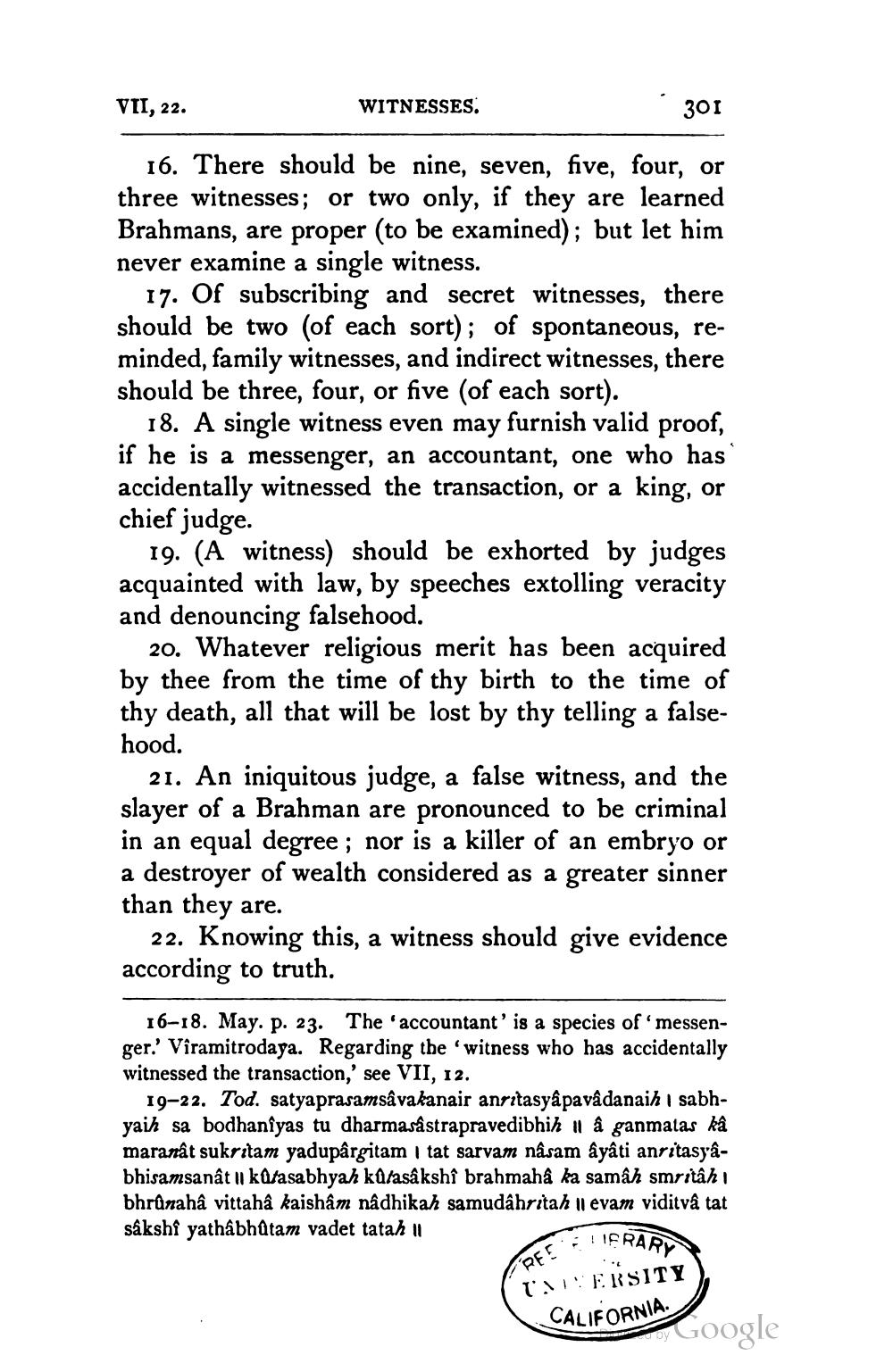________________
VII, 22.
WITNESSES
- 301
16. There should be nine, seven, five, four, or three witnesses; or two only, if they are learned Brahmans, are proper (to be examined); but let him never examine a single witness.
17. Of subscribing and secret witnesses, there should be two (of each sort); of spontaneous, reminded, family witnesses, and indirect witnesses, there should be three, four, or five (of each sort).
18. A single witness even may furnish valid proof, if he is a messenger, an accountant, one who has accidentally witnessed the transaction, or a king, or chief judge.
19. (A witness) should be exhorted by judges acquainted with law, by speeches extolling veracity and denouncing falsehood.
20. Whatever religious merit has been acquired by thee from the time of thy birth to the time of thy death, all that will be lost by thy telling a falsehood.
21. An iniquitous judge, a false witness, and the slayer of a Brahman are pronounced to be criminal in an equal degree; nor is a killer of an embryo or a destroyer of wealth considered as a greater sinner than they are.
22. Knowing this, a witness should give evidence according to truth.
16-18. May. p. 23. The accountant' is a species of messenger.' Vîramitrodaya. Regarding the 'witness who has accidentally witnessed the transaction,' see VII, 12.
19–22. Tod. satyaprasamsavakanair anritasyâpavadanaih i sabhyaih sa bodhaniyas tu dharmasastrapravedibhih il å ganmatas ka maranât sukritam yadupärgitam i tat sarvam nâsam âyâti anritasyabhisamsanât II katasabhyah kūtasâkshỉ brahmaha ka samah smritahi bhrûnahâ vittaha kaishâm nâdhikah samudâhritah Il evam viditva tat sakshi yathabhūtam vadet tatah 11
RELERAREN
1.VIERSITY
CALIFORNIA
Google




